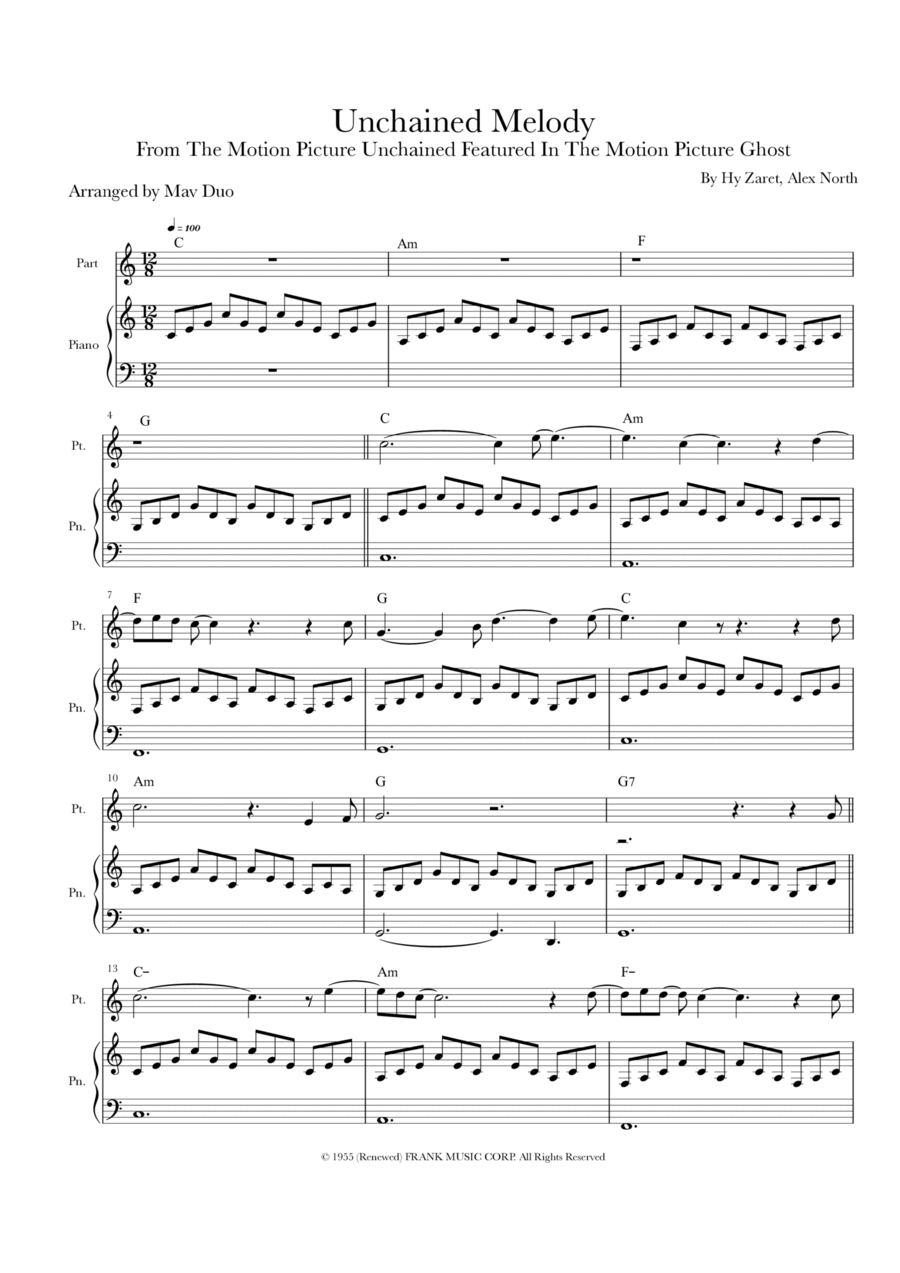Guitar,Piano,Vocal,Voice - Level 1 - Digital Download SKU: A0.1262597 By Al Hibbler. By Alex North and Hy Zaret. Arranged by Mav Duo. 20th Century,Broadway,Film/TV,Musical/Show,Pop,Wedding. Score. 5 pages. Musicial #855612. Published by Musicial (A0.1262597). Unleash the Melodic Splendor: An Enchanting Piano and Instrument Arrangement of Unchained MelodyAre you ready to embark on a captivating musical journey that will stir your soul and leave you breathless? Look no further, for we present to you an exquisite arrangement of Unchained Melody for piano and another instrument, such as the violin or flute in treble clef, that will transport you to realms of unparalleled beauty and emotion.Immerse yourself in the timeless allure of Unchained Melody as the piano and the chosen instrument unite, creating a harmonious symphony that will resonate deep within your being. With the piano laying down a captivating foundation, the accompanying instrument weaves its melodic threads, adding layers of exquisite charm and emotional depth to this beloved classic.Crafted with the utmost care and attention to detail, this arrangement showcases the sheer brilliance and versatility of Unchained Melody in a fresh and captivating light. The evocative piano chords form a rich tapestry, while the chosen instrument, whether it be the violin or flute in treble clef, takes center stage, expressing the soul-stirring melodies with grace and precision.Whether you are an accomplished pianist seeking an enchanting duet, a skilled violinist or flutist longing for a poignant piece to showcase your virtuosity, or simply a music lover in search of a mesmerizing arrangement, this piano and instrument duo is an absolute must-have. It offers an extraordinary opportunity to witness the seamless marriage of these two instruments, creating an extraordinary synergy that will captivate your senses.As the melodies intertwine, they tell a story of love, longing, and the deepest desires of the heart. With each stroke of the piano keys and each sweet, soaring note from the accompanying instrument, you'll be transported to a world where emotions run wild and unspoken sentiments find their voice.This piano and instrument arrangement of Unchained Melody is a testament to the power of music to touch the depths of our souls. It invites you to surrender to the enchanting melodies and be swept away by the emotional journey they offer. Allow yourself to be transported to a place where time stands still and where the raw, unfiltered expression of music becomes the language of the heart.Don't miss this extraordinary opportunity to own a piece of musical brilliance. Order your piano and instrument arrangement of Unchained Melody today and let the melodic splendor wash over you, enveloping you in a world of unparalleled beauty and emotion. Surrender to the harmonious embrace of these instruments, and let the music cast its spell, leaving an indelible imprint on your soul.Keywords: piano and instrument arrangement, Unchained Melody, enchanting musical journey, soul-stirring, harmonious symphony, emotional depth, fresh and captivating, evocative piano chords, chosen instrument, virtuosity, mesmerizing arrangement, extraordinary synergy, love and longing, unspoken sentiments, power of music, emotional journey, raw expression, musical brilliance, melodic splendor, unparalleled beauty and emotion, indelible imprint on the soul.
